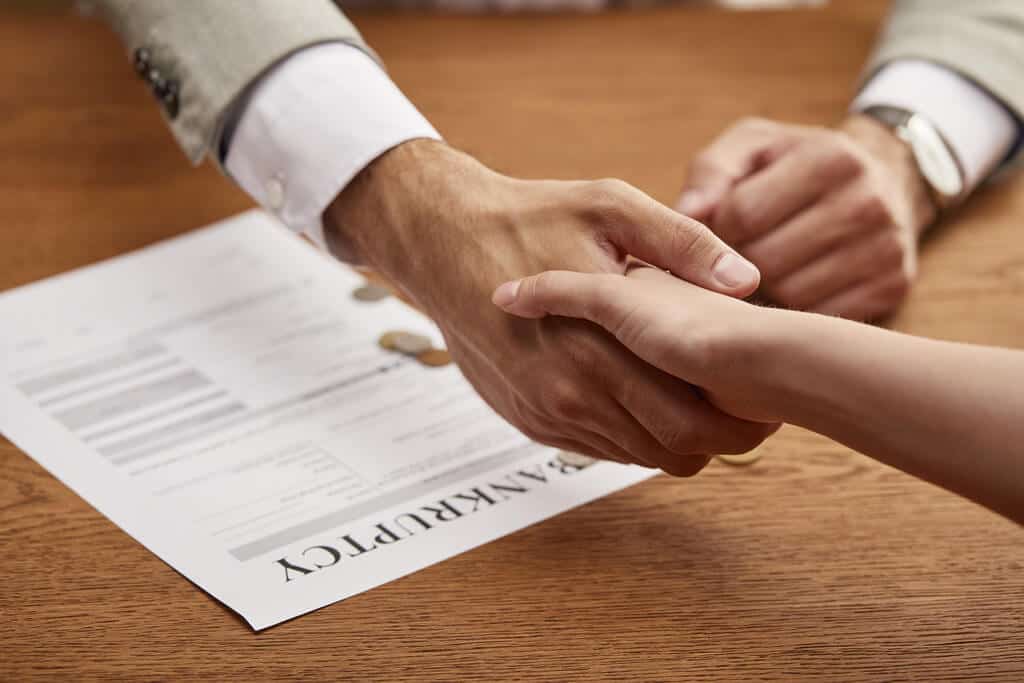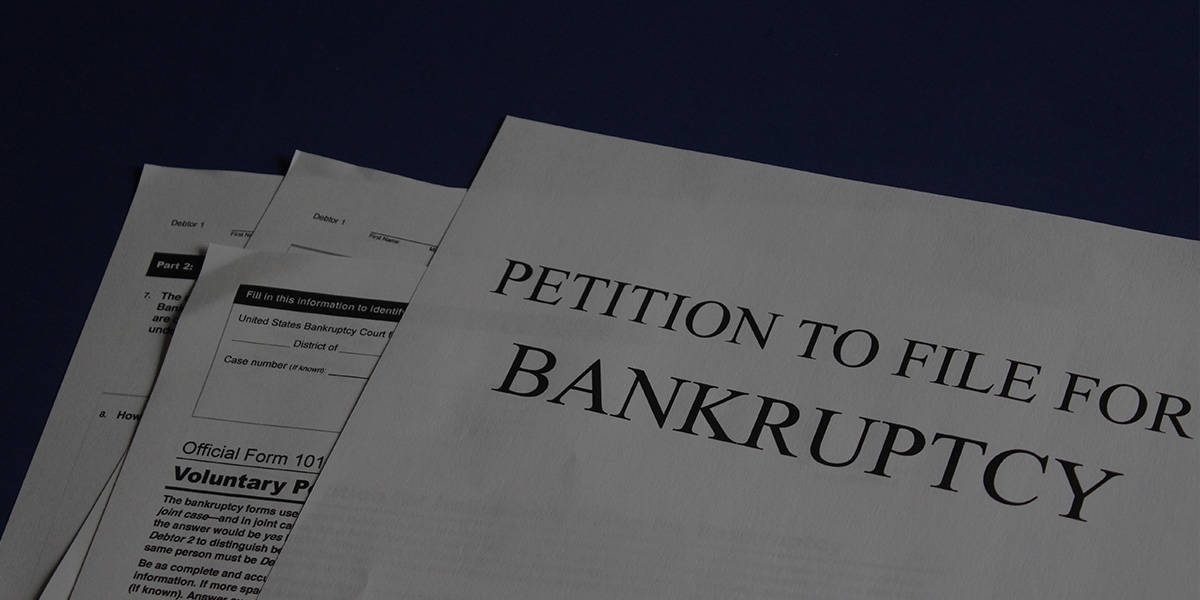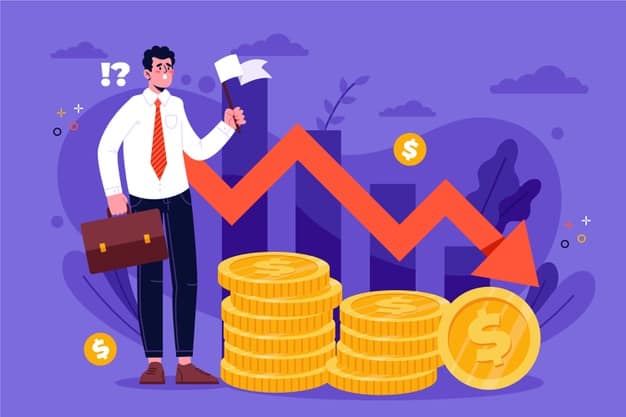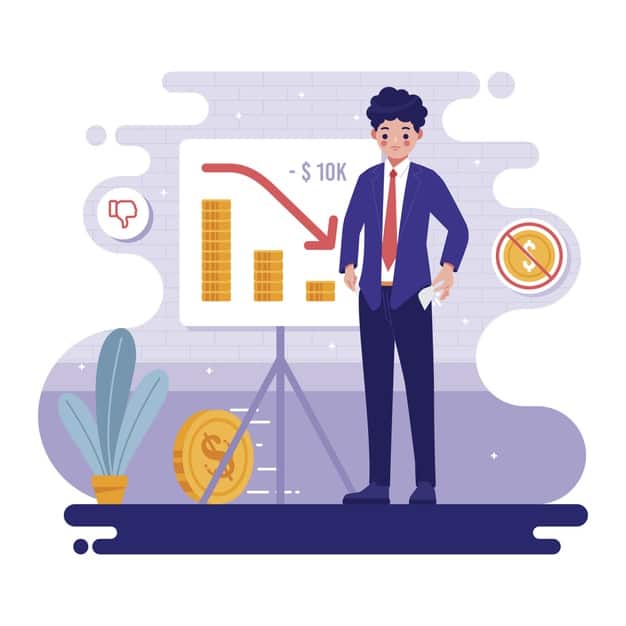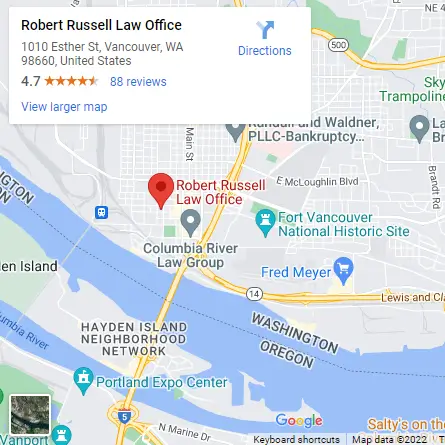Aftermath of a Bankruptcy Filing
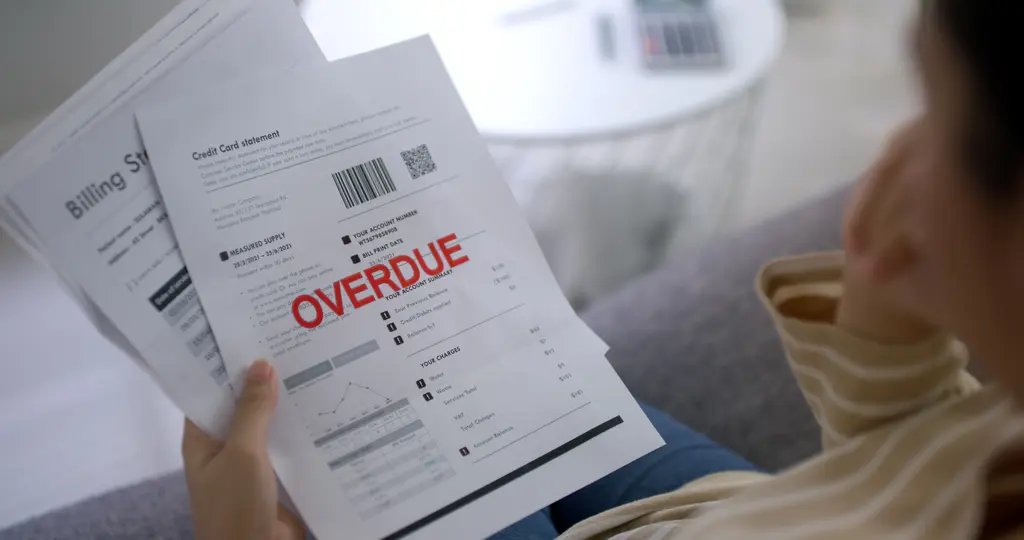
We all encounter financial difficulties every once in a while. There are many reasons why people struggle with financial debt. It might be because of unemployment, growing medical expenses, credit card debt, or marital issues.
A bankruptcy filing, regardless of the filing chapter, will stay on your credit report for several years. It will affect your credit score and ability to get credit after bankruptcy. Despite this, filing bankruptcy can help tremendously with debt settlement and make your life less stressful through the automatic stay. All these, however, must be taken seriously. Seemingly simple mistakes could lead to grave consequences.
A dedicated and well-trained Washington bankruptcy lawyer will look closely into your financial problems and guide you as you make a decision.
This article will discuss bankruptcies and what happens after a bankruptcy declaration. It is divided into the following sections:
- Filing a petition for bankruptcy in Vancouver
- How a bankruptcy case can help you
- Looking at the Chapter 13 bankruptcy procedure
- Looking at Chapter 7 bankruptcy proceedings
- Avail of legal services of a diligent local attorney
- Contact our Vancouver WA bankruptcy law office today
Filing a petition for bankruptcy in Vancouver
It is essential to keep in mind that different types of bankruptcy are suited for different filers, depending on their resources, obligations, and short- and long-term goals.
If you require debt relief and intend to file bankruptcy Chapter 7, a trustee will liquidate your non-exempt assets to pay off priority lenders. However, you must first pass the bankruptcy means test to be qualified to file bankruptcy under this chapter. Under relevant bankruptcy laws, your monthly income and living expenses will determine your eligibility as a filer.
Meanwhile, in a Chapter 13 bankruptcy, you will have the chance to restructure your overwhelming debts and bring current payments for secured debts (those with collateral). You can essentially avoid foreclosure and repossession by proposing a payment plan to the bankruptcy court. Here, the debt repayment plan will run for three or five years.
In general, a Chapter 7 liquidation, for example, is generally ideal for those dealing with credit card bills, medical bills, and personal loans. A Chapter 13 reorganization, on the other hand, is often apt for those with assets that they would want to keep.
How a bankruptcy case can help you
Being in serious debt is a big problem, and filing for bankruptcy may be the best way for you to rebuild your financial future. Depending on the specific circumstance of the bankrupt individual, filing for bankruptcy can help stop foreclosure, stop repossession, and stop wage garnishment.
Discharged debts
Under the bankruptcy code, unsecured debts generally pertain to debts without any collateral. These may include credit card bills, medical bills, and personal debts. However, certain types of debt do not involve collateral but are considered non-dischargeable. Typical examples include particular tax debt, criminal fines and penalties, child support, alimony, and student loan debt.
While not all of your debt problems will be eliminated when you file bankruptcy, it can help you eliminate certain forms of debt and free up a sufficient budget for you to pay back non-dischargeable debts. Trusted Vancouver WA bankruptcy lawyers can explain these advantages of a bankruptcy declaration in more detail.
The automatic stay
Most filers seek to benefit from the bankruptcy protection that comes with their case. An automatic stay ensures that creditors will not sue debtors for failure to pay back what they owe. It can also stop creditor harassment and wage garnishment, which is very useful for those struggling with debt. An automatic stay generally takes effect once the relevant bankruptcy court has approved a bankruptcy petition.
It is essential to keep in mind that declaring bankruptcy can harm the credit report of the bankrupt individual. Getting new credit can be pretty tricky, both during and after the entire bankruptcy process. Despite this, however, one would be able to notice a slow but steady recovery in their credit score several months after filing a bankruptcy petition.
Looking at the Chapter 13 bankruptcy procedure
Also known as a “wage earner” bankruptcy, Chapter 13 is generally helpful if you are a high-income earner who wants to reorganize your debts.
A bankruptcy case will involve numerous paperwork and supporting documents. These would include court forms and documentation that must be complete and comply with relevant bankruptcy rules. If you are planning to declare bankruptcy under Chapter 13, you would generally go through the following steps:
- Consult with a credit counselor and discuss finances and debt reorganization plans with a local attorney who shall help you document your eligibility
- Work with your bankruptcy trustee to be allowed by the court to repay secured and unsecured debts while retaining your assets
- Formally submit your bankruptcy petition to be able to benefit from the automatic stay
- Submit your proposed payment plan 14 days after filing the petition and work on making payments within 30 days from filing, even before it has been approved by the bankruptcy court
- Go through the confirmation hearing and complete the required debtor education course
Bankrupt individuals who are filing Chapter 13 bankruptcy cases must have a steady income to repay their debts. In this type of bankruptcy, you can keep all of your properties and assets, but you must pay back your creditors for non-exempt assets through a debt repayment plan. Such a payment plan will run for three to five years.
Looking at Chapter 7 bankruptcy proceedings
If you are planning to file bankruptcy under Chapter 7, you must first meet the following qualifications:
- Passing the bankruptcy means test, which takes into account monthly income and living expenses, among other things
- Not having a recently filed Chapter 7 or Chapter 13 petition in bankruptcy
- Not having filed a previous bankruptcy petition that has been denied due to non-compliance with a bankruptcy court order or failure to appear in court
The liquidation bankruptcy procedure will take more or less six months to complete. Below are some of the steps that you must take to have a successful bankruptcy proceeding:
- A certified nonprofit credit counseling provider will facilitate required counseling sessions.
- The assigned trustee in bankruptcy filings will take care of liquidating assets and distributing funds accordingly unless it is a ‘no asset’ case.
- A filer must complete a financial education course from a certified credit counseling organization before obtaining a bankruptcy discharge.
- The bankruptcy court will give out a court order for discharged debts around three to six months after filing bankruptcy. Here, all qualifying debts are forgiven or wiped out.
If you are facing financial difficulties and mounting debt, seek legal assistance from a professional bankruptcy attorney in Vancouver, WA.
Avail of legal services of a diligent local attorney
Filing for bankruptcy can provide filers protection from creditors with the ultimate goal of achieving a fresh start. When declaring bankruptcy in Washington, it is best to seek legal advice from a professional who can explain to you all relevant bankruptcy procedures. They can help you obtain debt relief and have the chance to rebuild your financial future.
Declaring bankruptcy is a feasible option for individuals struggling with debt, or those overwhelmed with making payments for what they owe. Given its complexity, however, knowledge of bankruptcy laws is necessary before proceeding. It can drastically change your financial situation, but various things must be done. If you decide to file for bankruptcy, you must carefully consider specific aspects of relevant state law.
Bankruptcy attorneys with extensive experience in handling bankruptcy cases can provide quality legal advice on how you can get back on track. Discuss your finances and debt reorganization plans, if any. This is also a good chance to clarify what can be done to have certain types of debt forgiven, be allowed to repay secured and unsecured debts while retaining your assets, or both.
Contact our Vancouver WA bankruptcy law office today
If you are planning to file bankruptcy, or are wondering if it is the best course of action to take, you need a lawyer who can help you solve your financial problems. Bankruptcy attorneys will help document your eligibility to a bankruptcy trustee, who will then administer proceedings brought to court.
Filing bankruptcy is a legal option for people to get out of debt and gain financial freedom once again. It enabled a lot of individuals to have a fresh start in life, letting you have a clean slate in terms of your finances. However, it is essential to seek legal help from a competent Vancouver bankruptcy lawyer. Contact us at Robert Russell Law Office for reliable bankruptcy information and quality legal representation and assistance.
If you are struggling with debt and are considering bankruptcy, call our bankruptcy law firm in Vancouver today.

